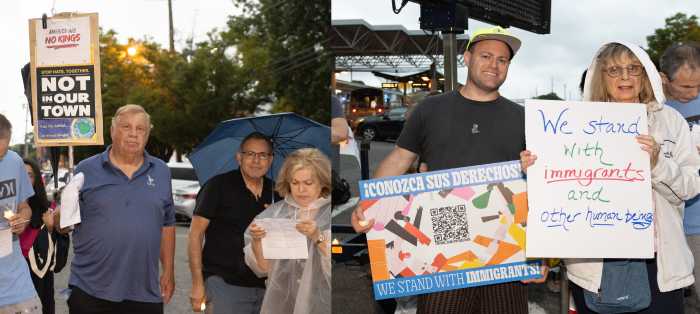With the Department of Homeland Security’s Nov. 20 decision to terminate Temporary Protected Status (TPS) for Haitians, 50,000 residents under the measure are now desperately searching for available legal measures that will allow them to stay in the United States.
TPS, which was granted to Haitians after the 2010 earthquake, covers 5,200 Haitians in New York, who have an estimated 1,900 U.S. born children. The foreign nationals are now seeking alternate methods to stay in the country where they’ve established careers, bought homes and raised children. The TPS designation ends July 22, 2019.
Uniondale-based immigration attorney Zahra Cheema said she’s had an uptick of Haitians covered under TPS in her office since President Donald Trump was inaugurated.
“They’ve been anticipating this for quite some time,” Cheema said. “The way it used to happen before, they weren’t targeting people living here without any kind of status who were minding their own business and working. Now they’re showing no leniency or leeway to people who are good denizens of the U.S.”
Cheema’s advice to Haitians who no longer have their TPS status? Get to an immigration lawyer.
“See if you qualify for anything,” said Cheema.
While most Haitians have been here past the year deadline to qualify for refugee status, they may be able to get a family or work-based Visa sponsorship. There are “miscellaneous” options too, Cheema noted, such as withholding of removal and investor visas.
While Haitians scramble to find a way to stay in the U.S., the ASPIRE Act, introduced in Congress by New York Rep. Yvette Clark, Florida Rep. Ileana Ros-Lehtinen and Washington Rep. Pramila Jayapal, seeks to create a path to permanent residency for TPS recipients who can prove they would face extreme hardship upon returning to their country, as well as create protected status for individuals who have been in the U.S. under the program for at least five years. Instead of waiting for status renewal every 18 months, the bill makes a provision for current TPS recipients to stay in the U.S. for a renewable six-year period, and potential permanent residency if they can prove extreme hardship.
But whether or nor that bill gains any traction is yet to be seen.
“It’s very difficult now to predict anything in this political environment. In different times, I would say yes [it would have passed],” said Irina Matiychenko, director of Immigrant Protection at New York Legal Assistance Group, adding that the fact that the deadline for Haitians to have to leave being extended 18 months speaks volumes. “These [TPS holders] are so integrated, they’re part of American society. The fact that this decision was not effected immediately speaks for itself. It means the country is not prepared to accept these people. There is no ground or justification for the decision to terminate the status.”
And if permanent residency is not granted, Haitians will have to decide between staying in the country illegally or returning to a country that is struggling to get back on its feet after a 2010 earthquake, and two devastating hurricanes.
“It will take forever for Haiti to recover from the devastation of the earthquake and it’s constantly being battered by hurricanes. How could a tiny country like Haiti even handle 59,000 people returning? And it’s not just TPS holders, but the TPS holders have U.S. born children,” noted Long Island Wins Executive Director Maryann Sinclair Slutsky. “Probably what most Haitians will do is live here as undocumented people.”






























